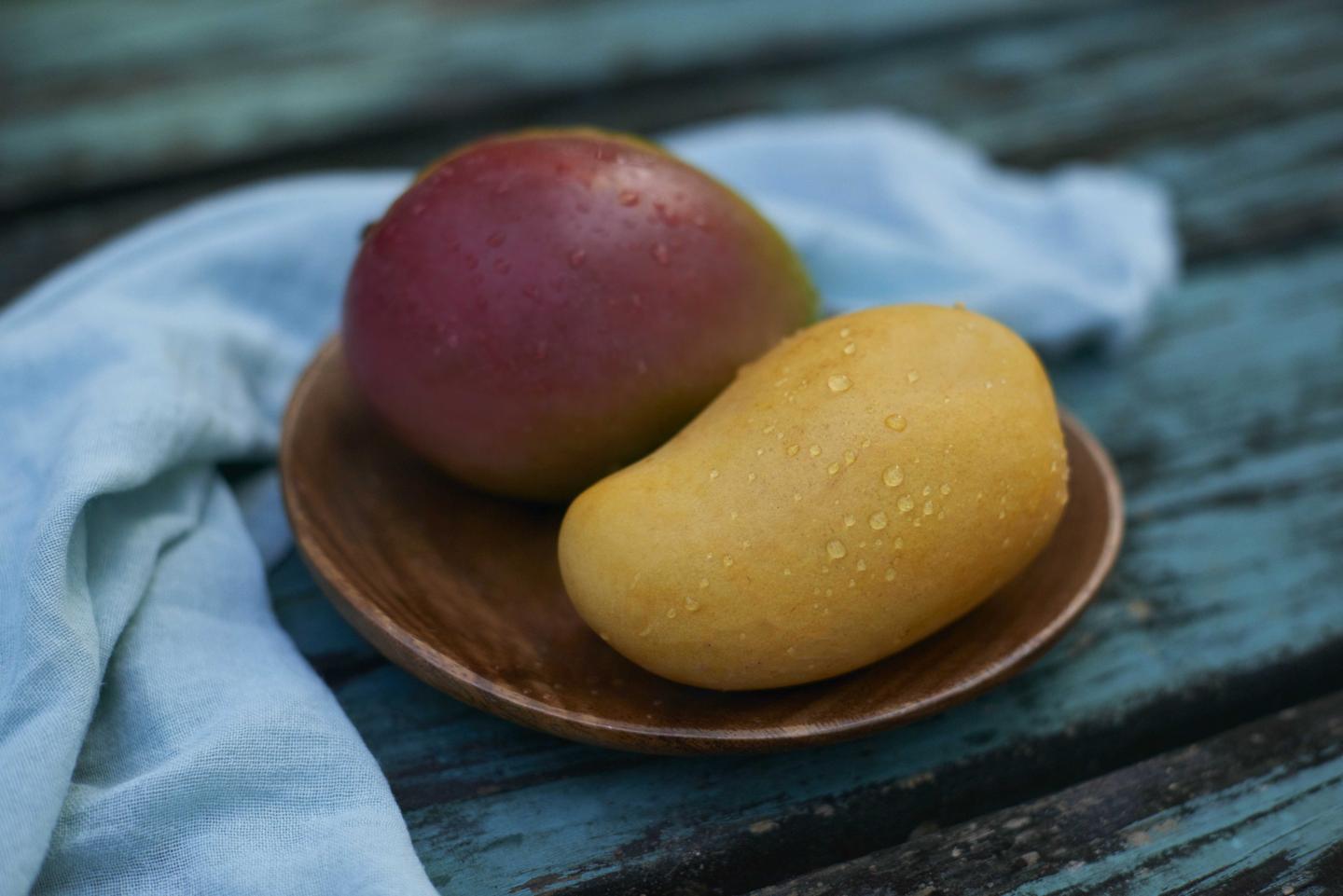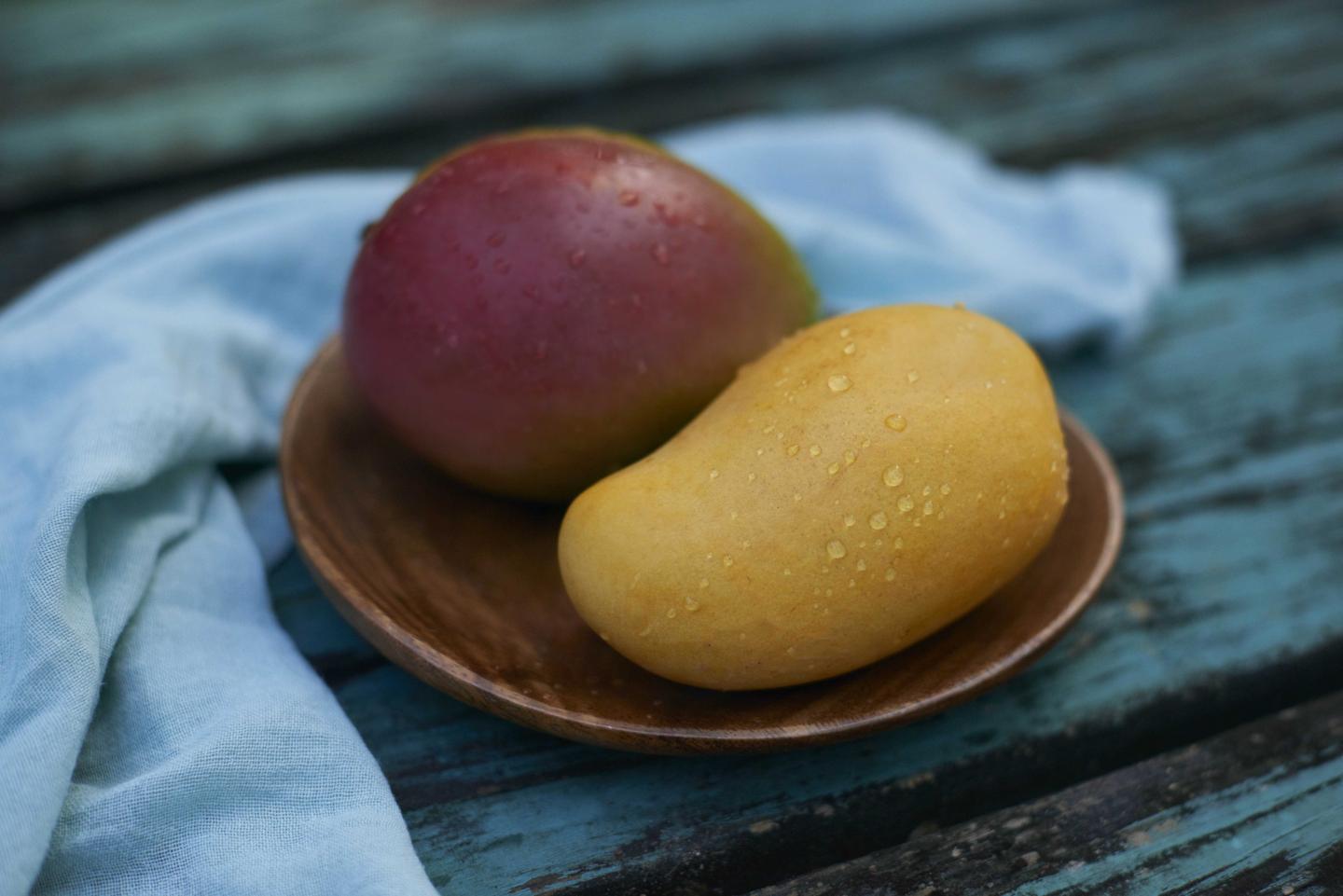
Credit: National Mango Board
ORLANDO, FL (June 6, 2018) — Next time you suffer from constipation, you may want to consider grabbing a mango instead of reaching for a fiber supplement, suggests a new Texas A & M University pilot study published in the peer-reviewed journal Molecular Nutrition and Food Research. The researchers found that mango, which contains a combination of polyphenols and fiber, was more effective than an equivalent amount of fiber powder in relieving constipation – a chronic digestive condition that affects an estimated 20 percent of Americans.
"Our findings suggest that mango offers an advantage over fiber supplements because of the bioactive polyphenols contained in mangos that helped reduce markers of inflammation and change the make-up of the microbiome, which includes trillions of bacteria and other microbes living in our digestive track," said corresponding author Susanne U. Mertens-Talcott, an associate professor in the department of nutrition and food science at Texas A & M University. "Fiber supplements and laxatives may aid in the treatment of constipation, but they may not fully address all symptoms, such as intestinal inflammation."
For the four-week study, 36 adult men and women with chronic constipation were randomly divided into two groups: the mango group ate about 300 grams of mango a day (equivalent to about 2 cups or 1 mango), while the fiber group consumed the equivalent amount of fiber powder into their daily diet (1 teaspoon or 5 grams of dietary psyllium fiber supplement).
Throughout the study, the participants' food intake was assessed by a food questionnaire to ensure that their eating habits did not change. The food intake analysis revealed that the mango and fiber groups consumed equivalent amounts of calories, carbohydrates, fiber, protein and fat.
Measures of constipation severity were taken at the beginning and end of four weeks, and both the mango and fiber groups improved over the course of the study. However, mangos were found to be more effective in reducing the symptoms of constipation in the participants than fiber alone. Mango supplementation significantly improved constipation status (stool frequency, consistency and shape) and increased short chain fatty acids levels, which indicate improvement of intestinal microbial composition. Mango consumption also helped to reduce certain biomarkers of inflammation.
The researchers conclude that more research is needed to determine the mechanism of action involved in the mango protective effect in constipation and which role mango polyphenols may play in supporting the beneficial effects of fiber.
###
The research was supported in part by funds from the National Mango Board.
About The National Mango Board
The National Mango Board is an agriculture promotion group supported by assessments from both domestic and imported mangos. The board's vision, to bring the world's love of mangos to the U.S., was designed to drive awareness and consumption of fresh mangos in the U.S. marketplace. One cup of the superfruit mango contains 100 calories, 100% of daily vitamin C, 35% of daily vitamin A, 12% of daily fiber, and an amazing source of tropical flavor. Learn more at mango.org.
Source: Venancio V, Kim H, Sirven MA, Tekwe CD, Honvoh G, Talcott ST, Mertens-Talcott SU. Mango (Mangifera indica L.) polyphenols ameliorate functional constipation symptoms in humans beyond equivalent amount of fiber. Molecular Nutrition and Food Research. 2018; May 7, [epub ahead of print].
Media Contact
Christine Vivoli
[email protected]
212-445-8004
http://www.webershandwick.com/
Related Journal Article
http://dx.doi.org/10.1002/mnfr.201701034





